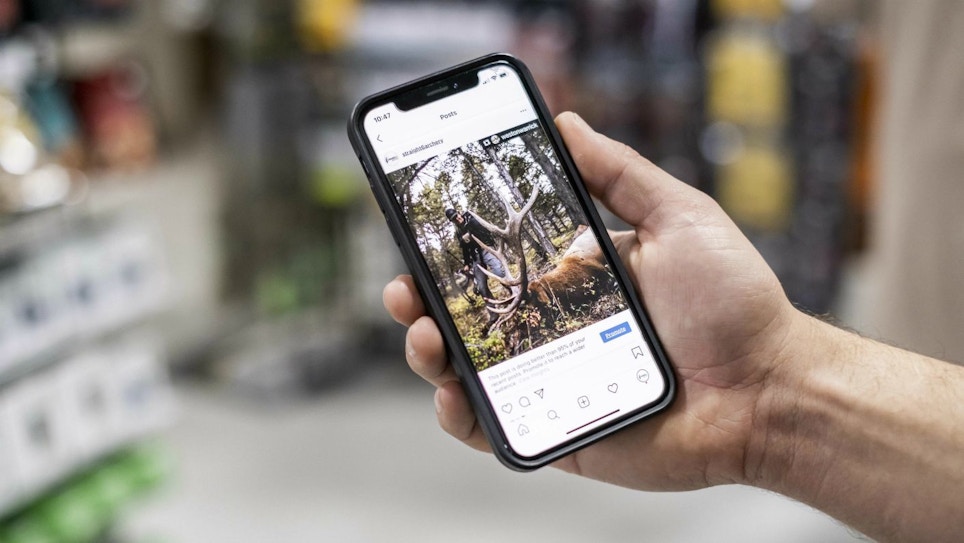As this is being written on April Fool’s Day 2020, the COVID-19 crisis has changed the way Americans live and do business. While it’s impossible to see into the future, one thing is very apparent, even now: We will not be doing business the way we did business in the past. There will be more work-from-home situations and more employees told to “do more with less.”
Non-essential business and school closures, as well as travel restrictions, have accelerated the importance of the internet in our daily lives. One indicator of weakness in our business appeared on March 31, 2020, when industry retail behemoth Bass Pro Shops’ debt outlook rating was lowered from “stable” to “negative” by Moody’s, a reflection on the risk that Bass Pro’s credit metrics may weaken on a sustained basis as a result of recessionary conditions and declines in discretionary consumer spending.
Things are tough; we all know that. And while progress has been made in combating the COVID-19 outbreak, medical experts are also saying that there may be another outbreak of the disease this fall, which will further negatively impact consumer spending.
So, with rapidly changing market conditions due to COVID-19, what do you do? Many marketing experts say that communicating with customers via social media has never been more important.
Embracing Social Media
The pandemic has accelerated the importance of social media as a source of instant information (some of it inaccurate, of course) and communication between individuals and their families and friends, and between businesses and their customers. Carissa Hill, author of the 2017 book “I LIKE MONEY: The Secrets To Actually Making Money With Facebook,” said it is imperative business owners embrace the instantaneous nature of social media to keep stakeholders and clients informed.
“Every business owner should have at least a pinned post on their Facebook page sharing where their business is at in relation to the Coronavirus pandemic,” said Hill. “Regular and new customers should be able to find a business on Facebook or Instagram to see if the business is still open, how they have adjusted to social distancing measures, and what products and services are still available.”
Hill said business owners should ramp up their social media as more people stay at home. “So many people will be on social media, and business owners should be proactive with offering quality content,” she said. “If your business closes or slows down, it is the ideal time to strategize, create content and expand your online offerings.”
What works? That, of course, depends on your own individual business model and marketplace. However, here are some proven concepts:
- Reach out to customers to see how they are doing. Look for opportunities to help people. Start conversations and build connections. People are craving human interaction.
- Has your storefront closed down or changed hours? Update that on Google and all of your social profiles, as well as creating a social media post about it. Keep this information current.
- Provide tips on projects that people can do at home with their families. For example, show them how to take care of their taxidermy mounts, properly sharpen knives, prepare new recipes with the game they already have in their freezers. I’m sure you can think of many more.
- Create interaction opportunities through a forum or chat by stimulating discussion about hunting and shooting-related topics. Here’s a chance to discuss game laws, season and bag limits, weapons restrictions, public land access issues, which cartridges are best for what, etc. Topic options are virtually unlimited.
- With travel and social distancing restrictions possibly still in place and hunt budgets seriously impacted, hunters who routinely travel to hunt may begin looking for low-cost, close-to-home opportunities. How can you help find them?
- On the popular television sitcom “Last Man Standing,” Mike Baxter ends each show with a vlog (video blog). Can you produce your own vlog that is instructional and stimulates conversation among customers while soft-selling your store as the place to come for all things hunting in your market area?
- One reason a social media post should almost always create a situation where it encourages interaction and comments from people is because that works with the algorithms and pushes it higher up people’s newsfeeds. Ask questions such as, “What is your favorite feature of this product,” or “Tell us what bullet is best for deer,” or “Tag a friend who should try this.” Maybe do contests based on this interaction. Algorithms love Top 10 lists, for example.
- People will be looking for fun and entertaining content for distraction, so consider Instagram Stories, Facebook Live and YouTube. Running your own YouTube channel will definitely get you eyeballs.
- Be consistent. On Facebook, one to two posts a day gets consistent interaction but does not negatively affect the algorithms, but four posts a day will negatively affect the algorithms. Consistency also encourages people to come to your page every day.
- Avoid putting pricing in your posts. Pricing will get you reported to Facebook or the algorithm will catch you. Instead, ask customers to message or email you directly for pricing information.
- Above all else, all content you post, whether it be words, pictures or video, needs to be high-quality stuff. The competition for people’s attention is fierce, and if you throw up garbage just to post something, people will not only quit coming to your site, but will also start associating mediocrity with your brand.
Hill said, “By building up a good relationship with your followers on social media throughout the pandemic, you will be in a better position to relaunch once it starts to go away.” That’s a place all small businesses need to be.






